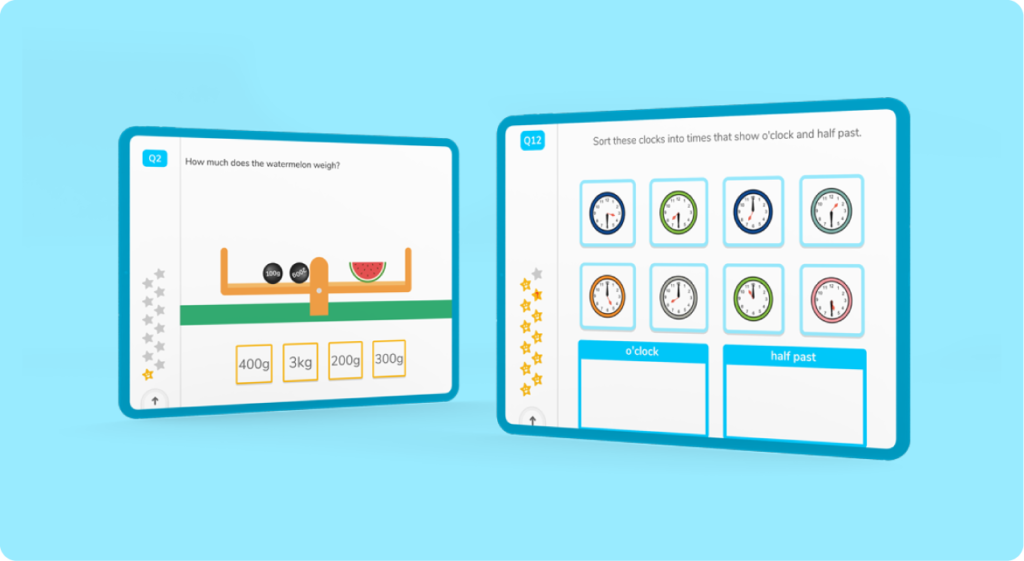

Seven tips for parents on how to offer maths help to their Year 7 maths student!

Author
Mhairi Sim
Published
August 2024


Seven tips for parents on how to offer maths help to their Year 7 maths student!

Author
Mhairi Sim
Published
August 2024


Seven tips for parents on how to offer maths help to their Year 7 maths student!

Author
Mhairi Sim
Published
August 2024


Key takeaways
Table of contents
Year 7 marks the start of your child’s secondary school journey. It’s a pretty big deal! Between a new school, new friends, moving classrooms, and more than one teacher – there is a lot to adjust to this year!
With so much on our kid’s plates this year, it’s our job as parents to help keep their learning on track. So, what can you do to ensure the maths revision Year 7 kids are doing is helpful?
Below are seven tips on how to help your child with Year 7 maths and offer maths revision that makes an impact.
Unlock unlimited maths questions
Put your skills to the test with fun exercises + maths games that are proven to boost ability!
One of the best ways to help with Year 7 maths is to keep practising what students already know!
In my experience, when the KS2 SATs are done and dusted, a lot of kids put what they’ve learned to the back of their minds and are ready to enjoy their summer – and boy have they earned that break!
However, this means that by the start of Year 7, a lot of students find it difficult to recall what they’ve learned in Year 6 maths.
Spending time with your child to go over what they learned in the Year 6 maths curriculum is a fantastic way to warm them up to the Year 7 maths curriculum.
Try out these Year 6 maths questions to start off their revision and move on to the Year 7 questions when they’re ready for the challenge!
Something I can confidently say makes the biggest difference in my classroom is a student’s attitude towards their learning. I’ve seen a positive mindset turn things around for some students in ways that hours of revision never could!
One way to pursue a positive mindset is placing value on effort over performance! This means celebrating the effort and attempt made at the question even if the answer isn’t right.
Even if students don’t get the right answer, chances are they’ve still made progress and learned something! In retracing their steps, they’ll be able to see where they went wrong and hopefully avoid making the same mistakes again!
You can also help by becoming more maths-positive at home! Try to avoid talking about maths in a negative way and engage with your kids by asking them to show you what they’ve learned.
DoodleMaths is an award-winning maths app that’s aligned to the Year 7 maths curriculum and proven to double a child’s rate of progression with just 10 minutes of use a day!
Filled with fun, interactive questions covering the whole curriculum, it creates each child a unique work programme tailored to their needs, boosting their confidence and skills in maths. Try it for free today!

Year 7 can be a stressful time for our kiddos as there’s a lot of change happening this year. In order to help them succeed academically, it’s super important to make sure they get enough downtime.
Ensuring your kiddos get plenty of time to build new friendships they’re forming at secondary school is key to making sure they’ve got a solid support network and can actually boost their scores!
They’ll also need time to switch off from school completely. Time spent enjoying a hobby or family can be super beneficial in helping them rest and reset for learning!
They say good habits are built over time, and that’s no different when it comes to getting into a good study routine!
Whether it’s getting homework done or Year 7 maths revision, setting aside scheduled time each week for dedicated study can be helpful for building good habits.
If you can, create a dedicated study space and come up with a reasonable schedule that leaves time for homework, revision, and extra-curricular activities! If you do this at the start of KS3, it means they’ve plenty of time to build this habit in the years leading up to GCSEs!
Equivalence, integers, multiplicative relationships, prime factorisation – what do all these terms actually mean!?
With so many new concepts coming learners’ way in Year 7, learning the meaning of key maths vocabulary can be really helpful! If your child is getting lost in the language of maths, use a mathematics glossary to help them out.
Encourage them to write down any terms they come across so they can revisit their meaning later on. They could even create flashcards to test themselves!
Try DoodleMaths for free!
Select a year group
A great place to start with supporting maths revision for Year 7 is speaking directly with their maths teacher. Parent-teacher conferences are a great opportunity for this, but you can always request a meeting if you’d like to speak sooner.
Ask questions to find out if there are any target areas your child’s teacher feels would be beneficial to work on outside of school. Then you can target at-home revision time to focus on these areas!
Keeping kiddos off their devices can be a challenge for sure! But, what if their time on devices actually helped them with Year 7 maths revision?
The Doodle Learning maths app has thousands of games and interactive activities that have been shown to double academic progress with just 10 mins of use per day*! What’s better, is that it’s the perfect way to make Year 7 maths revision FUN!
All the activities are fully aligned with the Year 7 national curriculum, and teachers or parents can monitor learners’ progress from their own separate dashboards.
* Average progress when earning 10+ stars a day

Parents, sign up for a DoodleMaths subscription and see your child become a maths wizard!

Lesson credits

Mhairi Sim
Mhairi is an experienced teacher, freelance writer and parent. After completing her bachelor's degree in Psychology, she graduated as a teacher from the University of Strathclyde. She then built experience teaching across KS1 and KS2 throughout the UK. In addition to working in mainstream education, Mhairi specialised in the additional support needs sector, including social, emotional, and behavioural support.

Mhairi
Mhairi is an experienced teacher, freelance writer and parent. After completing her bachelor's degree in Psychology, she graduated as a teacher from the University of Strathclyde. She then built experience teaching across KS1 and KS2 throughout the UK. In addition to working in mainstream education, Mhairi specialised in the additional support needs sector, including social, emotional, and behavioural support.
Book a chat with our team
If you’d like to use Doodle’s browser version, please visit this page on a desktop.
To log in to Doodle on this device, you can do so through our apps. You can find out how to download them here: